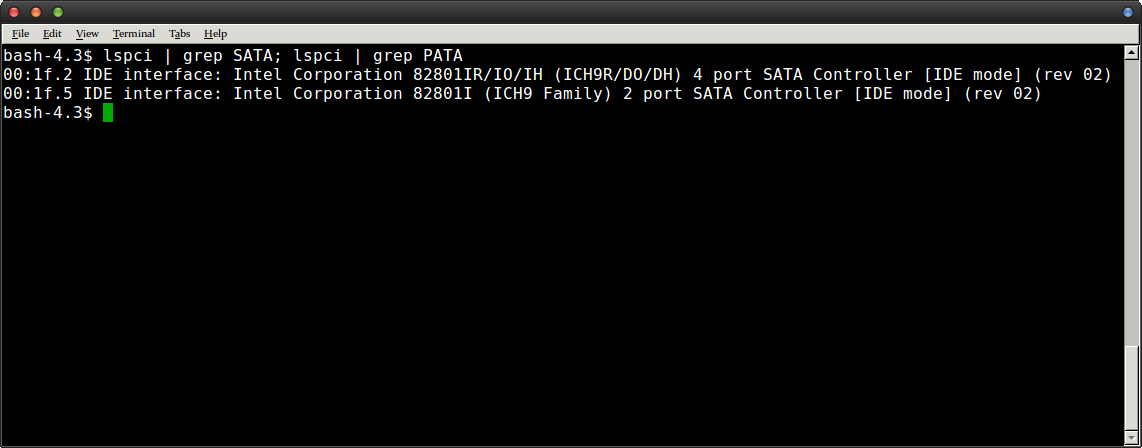- Lspci On Windows 8
- Lspci On Windows 7
- Lspci On Windows 7
- Lspci On Windows Update
- Lspci On Windows 10
- Lspci Windows 10

Lspci On Windows 8
PCI-Z is designed for detecting unknown hardware on your Windows based PC. It will help you determine vendor, device and certain details about device even if you don't have drivers installed. Software uses The PCI ID Repository, a public repository of all known ID's used in PCI devices: ID's of vendors, devices, subsystems and device classes. At Build 2020 Microsoft announced support for GPU compute on Windows Subsystem for Linux 2. Ubuntu is the leading Linux distribution for WSL and a sponsor of WSLConf. Canonical, the publisher of Ubuntu, provides enterprise support for Ubuntu on WSL through Ubuntu Advantage. This guide will walk early adopters through the steps on turning. If lspci doesn't recognize some device in your machine and you know what the device is, please submit an update to the database. Feedback You can ask questions and report bugs on the linux-pci mailing list running on Vger, but please Cc the author ( mj@ucw.cz ).
Spike on IRC was commenting about how much of a pain in the arse it is to track down drivers for unknown hardware on Windows, and how easy it is under Linux using lspci. I sat and thought about it – lspci can’t possibly pluck hardware strings from nowhere, there has to be some sort of database… and there is, and best of all there’s a web-based front end to it.
So here’s how to do it yourself in a few easy steps… first, right-click My Computer and choose properties. Then, go to the Hardware tab, and pick Device Manager.
Navigate to your unknown device, double-click it and then pick the Details tab. Find the Hardware Ids entry, and look for the most detailed entry. My shitty SiS network adaptor’s is “PCIVEN_1039&DEV_0900“.
Navigate to the PCI Devices database in a browser on an internet-connected computer. In my case, I’m looking for vendor ID 1039, so I’ll click “1” and scroll down… and I’ll find the Vendor “Silicon Integrated Systems [SiS]”, which is to be expected. Click into the Vendor entry and look for the Device ID.
That should hopefully give you the correct Google-snacks to track down a driver for the hardware. 😀

What's that?
The PCI Utilities are a collection of programs for inspecting and manipulatingconfiguration of PCI devices, all based on a common portable library libpciwhich offers access to the PCI configuration space on a variety of operating systems.
The utilities include: (See their manual pages for more details)
- lspci
- displays detailed information about all PCI buses and devicesin the system
- setpci
- allows reading from and writing to PCI device configurationregisters. For example, you can adjust the latency timers with it.

Supported systems
The library (and therefore all the utilities) works on the followingoperating systems:
- Linux
- FreeBSD
- NetBSD
- OpenBSD
- GNU/kFreeBSD
- Solaris/i386
- AIX
- GNU Hurd
- Windows
- CYGWIN
- BeOS
- Haiku
- Darwin
Lspci On Windows 7

However, not everything is supported on all systems. Some back-ends are read-only,some access the I/O ports directly, which need not work reliably. The only back-endwhich has all the features is Linux with a recent kernel.
In particular, the port to Windows is obsolete and it currently lacks a maintainer.If you are willing to step up and fix the issues, please let us know.
Download
The latest release of pciutils is version 3.7.0 (2020-05-31).
You can download it from the following servers.Please note that we provide only sources, not compiled binaries for any system.
- mj.ucw.cz (the master site, also available using FTP)
- www.kernel.org (expect a few hours delay)
Sometimes, development versions are also avaiable for testing. If you feel brave,download them from the alpha directory of the FTP servers.
Lspci On Windows 7
There is also a public Git tree at git://git.kernel.org/pub/scm/utils/pciutils/pciutils.gitcontaining the current development code. You can also view the shortlogof the development tree. The Git tree is mirrorred at GitHub.
PCI IDs
Lspci On Windows Update
The PCI Utilities also contain a list of known vendors and devices.It is used for displaying vendor/device names instead of the ID numbers reportedby the devices themselves. The list is maintained separately by thePCI ID Database project.Daily snapshots are available there and also mirrored at GitHub.
Lspci On Windows 10
If lspci doesn't recognize some device in your machine and you knowwhat the device is, please submitan update to the database.
Feedback

Lspci Windows 10
You can ask questions and report bugs on the linux-pcimailing list running on Vger, butplease Cc the author (mj@ucw.cz).Announcements about new versions are also sent to the list.